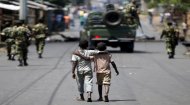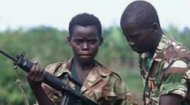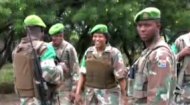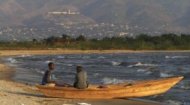|
Burundi Refugees
According to the CIA, not only were there 100,000 internally displaced people within Burundi following the civil war there, a further 352,640 Burundi refugees were living in Tanzania, 17,777 refugees were living in the Democratic Republic of Congo, 4400 were in Rwanda, in addition to those who had fled further afield. Many of those displaced had left Burundi in the conflict of 1972 followed by further waves as a result of the long civil war and had been living in refugee camps, most notably in Tanzania. Inevitably an entire generation of Burundi children had never actually been to their country of origin and had no ties there, certainly no property to live in nor land to work to create a sustainable living. |
|
|
The refugee situation in Burundi is probably the longest running refugee episode in modern history. Over the past few years the situation in Burundi has calmed, and inevitably the refugee caps, notably in Tanzania, have started to close, with their inhabitants being advised to return to Burundi. Despite the 500,000 refugees who have returned home since 2006, 162,000 remained in Tanzania having been granted citizenship (these were mainly Hutu and had already migrated from the refugee camps and integrated within Tanzanian society) and around 5000 have expressed a wish to remain in the Democratic Republic of Congo. (Ironically, Burundi is home to 40,00 refugees who fled there from the DRC.)
 It is difficult to fully comprehend the plight of these refugees. It was not a matter of fleeing violence to the relative safety of camps in mainly western Tanzania, but a chaotic and terrifying flight with people being massacred behind them. Many who arrived in the camps were children, traumatised by seeing their parents slaughtered in front of their eyes and not knowing what part of Burundi they came from, nor much about themselves, and certainly with no documentation. Whilst the camps themselves were safer than the situation in Burundi, they were no safe havens. Hastily constructed with little or no management, violence was rife, orphans were at risk and girls in particular could supplement their food aid by providing 'favours' for older men. It is difficult to fully comprehend the plight of these refugees. It was not a matter of fleeing violence to the relative safety of camps in mainly western Tanzania, but a chaotic and terrifying flight with people being massacred behind them. Many who arrived in the camps were children, traumatised by seeing their parents slaughtered in front of their eyes and not knowing what part of Burundi they came from, nor much about themselves, and certainly with no documentation. Whilst the camps themselves were safer than the situation in Burundi, they were no safe havens. Hastily constructed with little or no management, violence was rife, orphans were at risk and girls in particular could supplement their food aid by providing 'favours' for older men.
The children who grew up there not only had to cope with the trauma of their past, but lived in fear and had no meaningful future to return to. The situation for women was equally dire as an early Human Rights Watch report entitled Seeking Protection: Addressing Sexual and Domestic Violence in Tanzania's Refugee Camps noted, "When Burundi women fled the internal conflict there, they expected to find safety and protection in the refugee camps. 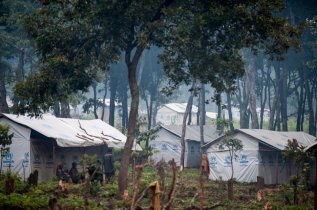 Instead, they simply escaped one type of violence in Burundi to face other forms of abuse in the refugee camps in Tanzania." As the civil war itself ended, the international community lost interest and funding to support those in the camps largely dried up leaving organisations such as UNICEF almost alone in trying to identify and match children with their extended families and provide child protection and support services. Instead, they simply escaped one type of violence in Burundi to face other forms of abuse in the refugee camps in Tanzania." As the civil war itself ended, the international community lost interest and funding to support those in the camps largely dried up leaving organisations such as UNICEF almost alone in trying to identify and match children with their extended families and provide child protection and support services. As the refugee camps began to close with Tanzania, already one of the world's poorest countries eager to repatriate those living in exile, many faced an uncertain future particularly families with mixed marriages between Hutu-Tutsi. Those families became convinced that they would be killed on their return to Burundi, and many fled the camps and tried to disappear without papers or anywhere to go with their children. The video (right) explores many of the challenges these returning refugees face, not least where to live in what is already one of the most densely populated nations of Africa. Against this backdrop is the simmering tension between the Hutu and the Tutsi, tension which could again erupt over land disputes, particularly for those returning refugees who hope to reclaim land and property they abandoned a quarter of a century ago.
|
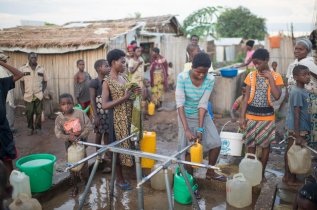
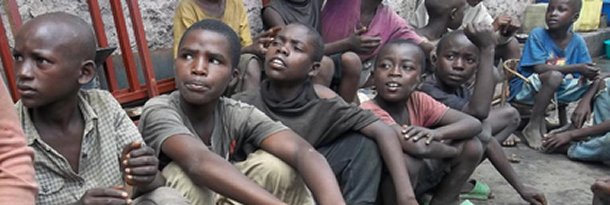
 It is difficult to fully comprehend the plight of these refugees. It was not a matter of fleeing violence to the relative safety of camps in mainly western Tanzania, but a chaotic and terrifying flight with people being massacred behind them. Many who arrived in the camps were children, traumatised by seeing their parents slaughtered in front of their eyes and not knowing what part of Burundi they came from, nor much about themselves, and certainly with no documentation. Whilst the camps themselves were safer than the situation in Burundi, they were no safe havens. Hastily constructed with little or no management, violence was rife, orphans were at risk and girls in particular could supplement their food aid by providing 'favours' for older men.
It is difficult to fully comprehend the plight of these refugees. It was not a matter of fleeing violence to the relative safety of camps in mainly western Tanzania, but a chaotic and terrifying flight with people being massacred behind them. Many who arrived in the camps were children, traumatised by seeing their parents slaughtered in front of their eyes and not knowing what part of Burundi they came from, nor much about themselves, and certainly with no documentation. Whilst the camps themselves were safer than the situation in Burundi, they were no safe havens. Hastily constructed with little or no management, violence was rife, orphans were at risk and girls in particular could supplement their food aid by providing 'favours' for older men. Instead, they simply escaped one type of violence in Burundi to face other forms of abuse in the refugee camps in Tanzania." As the civil war itself ended, the international community lost interest and funding to support those in the camps largely dried up leaving organisations such as UNICEF almost alone in trying to identify and match children with their extended families and provide child protection and support services.
Instead, they simply escaped one type of violence in Burundi to face other forms of abuse in the refugee camps in Tanzania." As the civil war itself ended, the international community lost interest and funding to support those in the camps largely dried up leaving organisations such as UNICEF almost alone in trying to identify and match children with their extended families and provide child protection and support services.